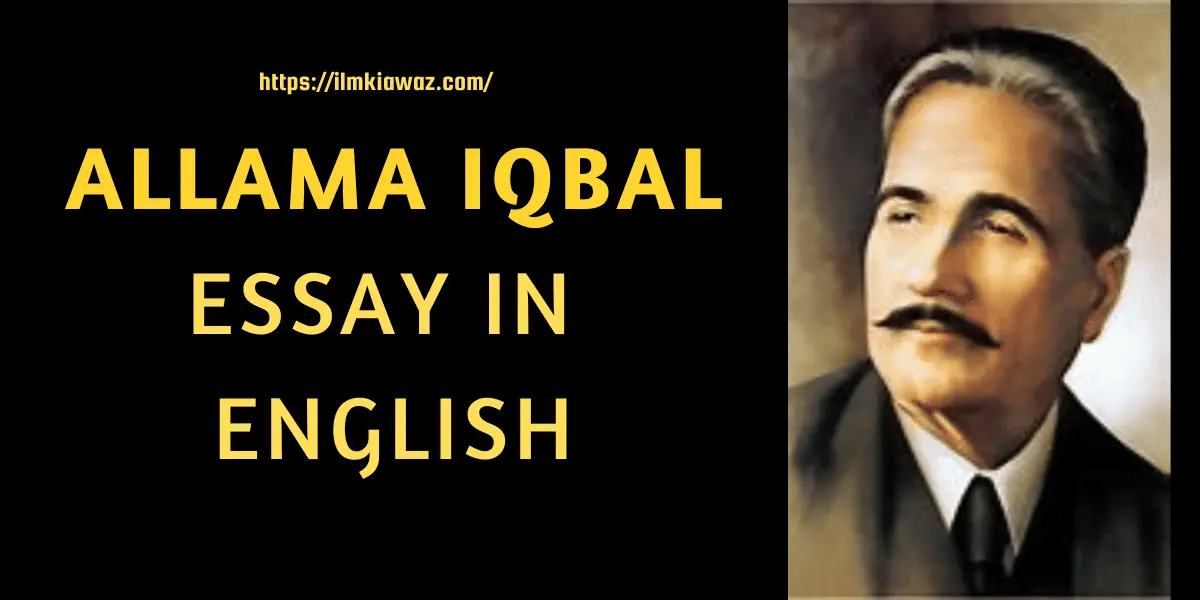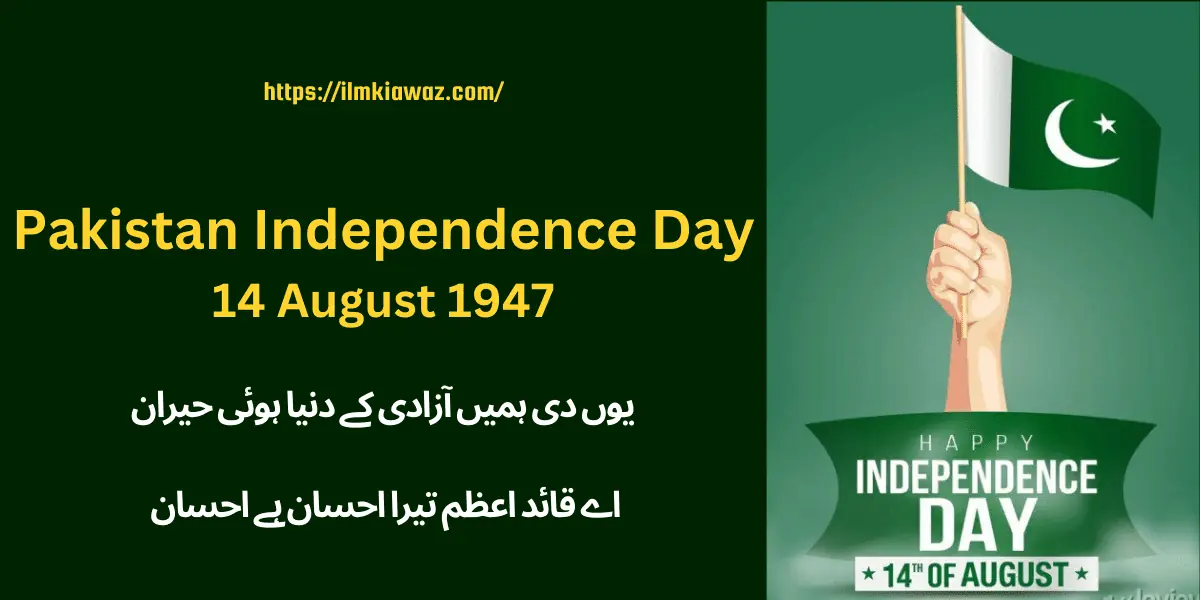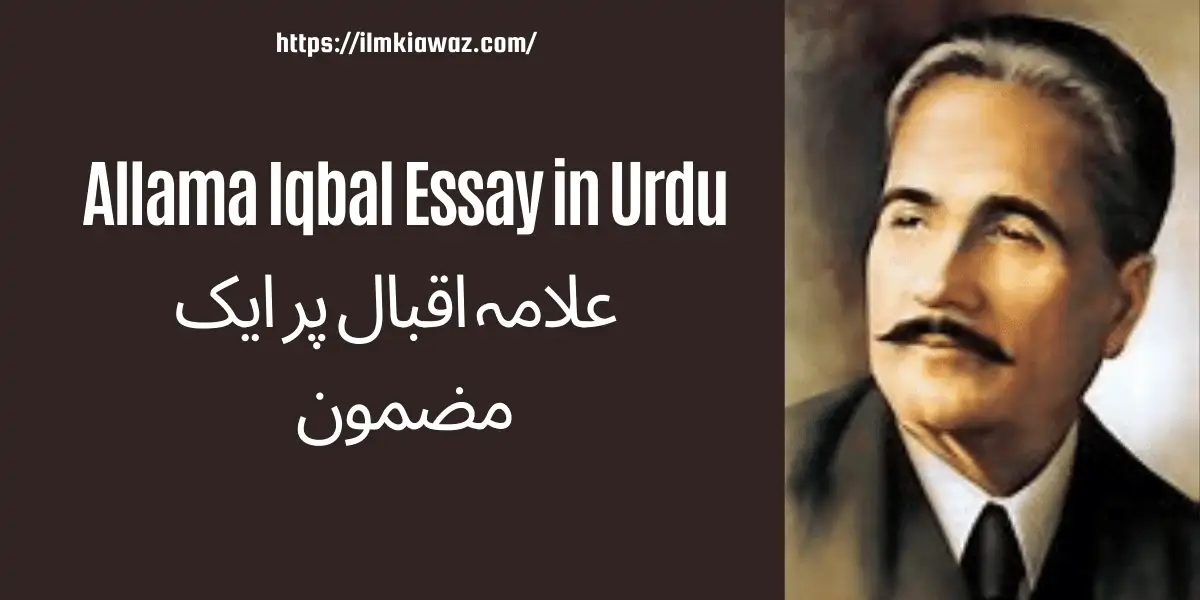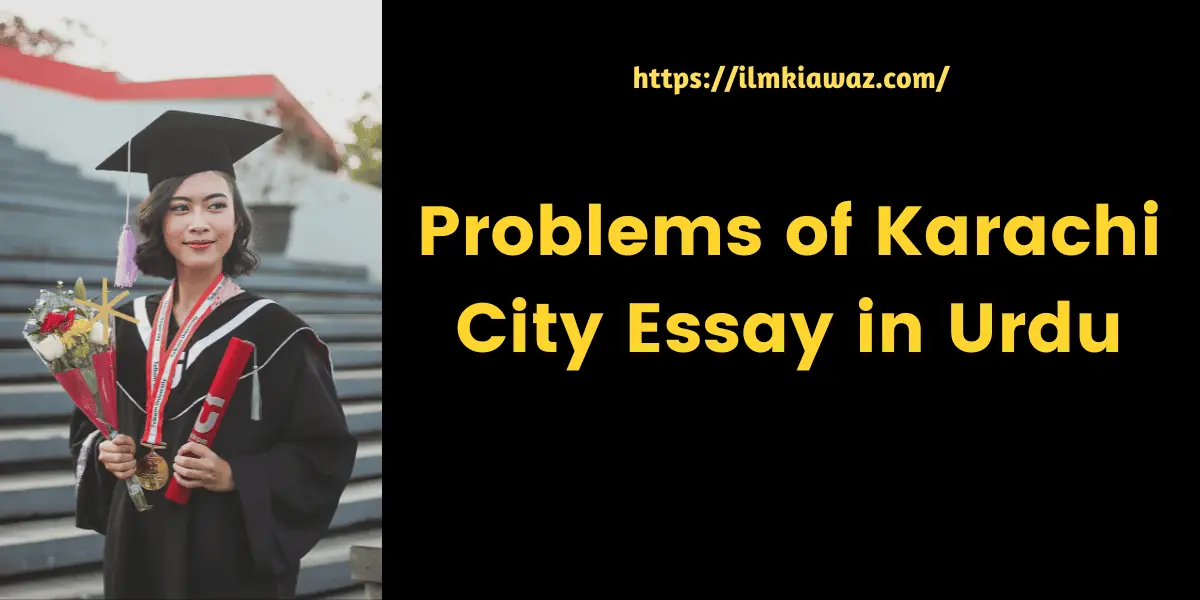Today I write an allama iqbal essay in English with headings, pdf, and quotations for classes 3,6,4,5,7,8,9,1,2, and 10th in small, easy, and short wording. Allama Iqbal is one of the most prominent figures in Urdu literature and Pakistani history. Dr Allama Muhammad Iqbal was a renowned poet, mystic, philosopher, and political activist who was pivotal in the Pakistan Movement. In this my favourite personality allama iqbal essay, we will explore Allama Iqbal’s life, achievements, and legacy, highlighting his enduring impact on modern Pakistani society.
Allama Iqbal Essay in English | علامہ اقبال پر مضمون
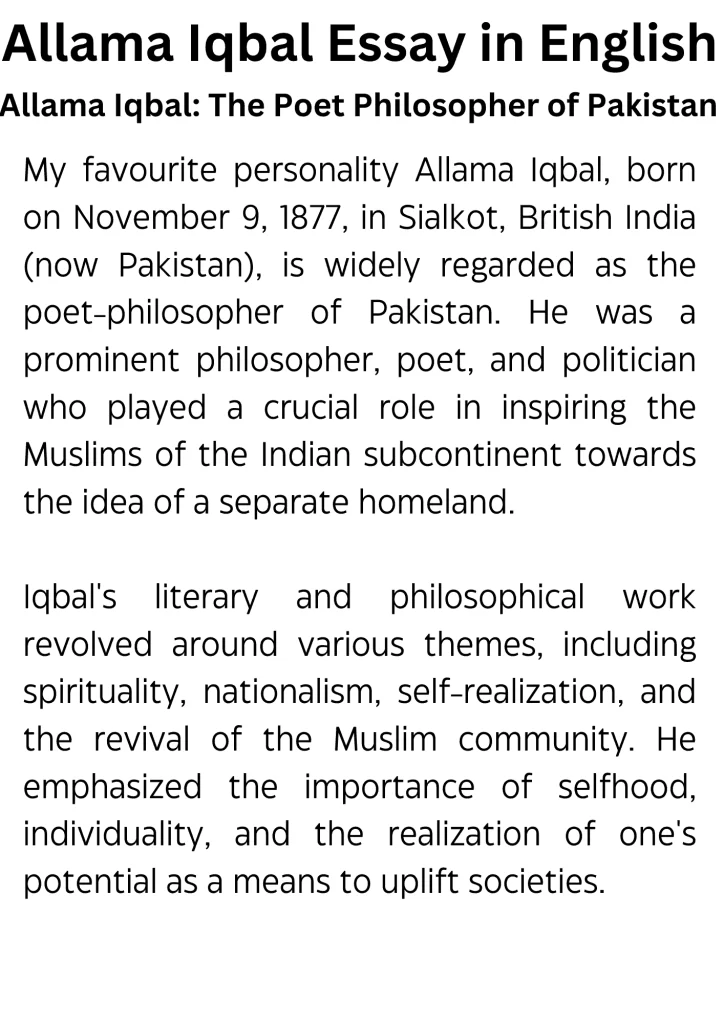
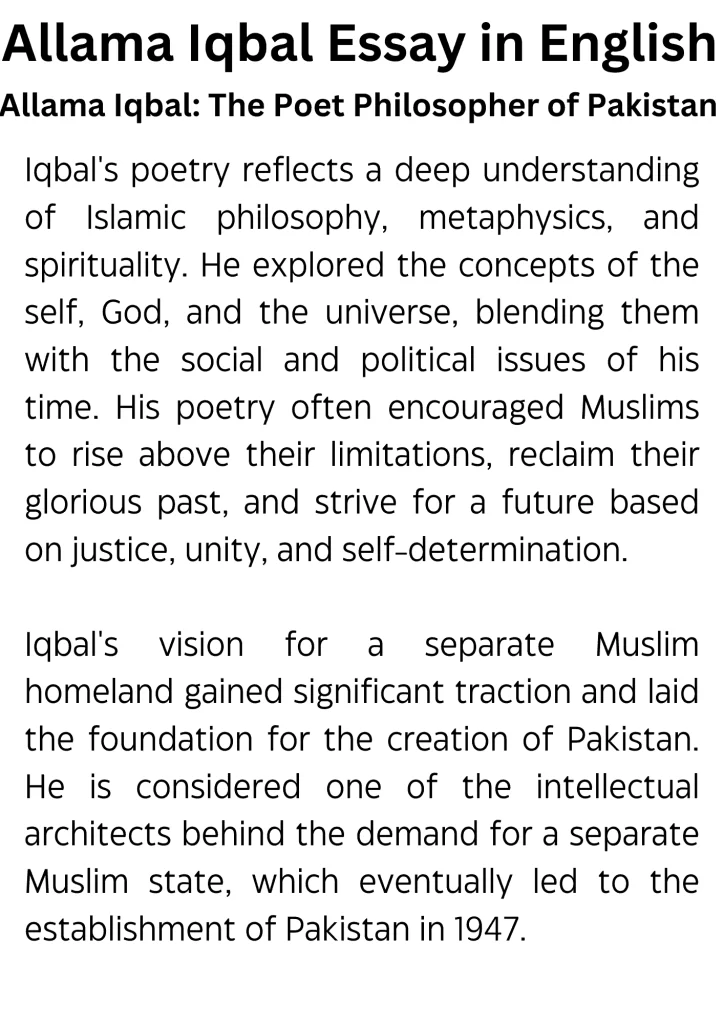
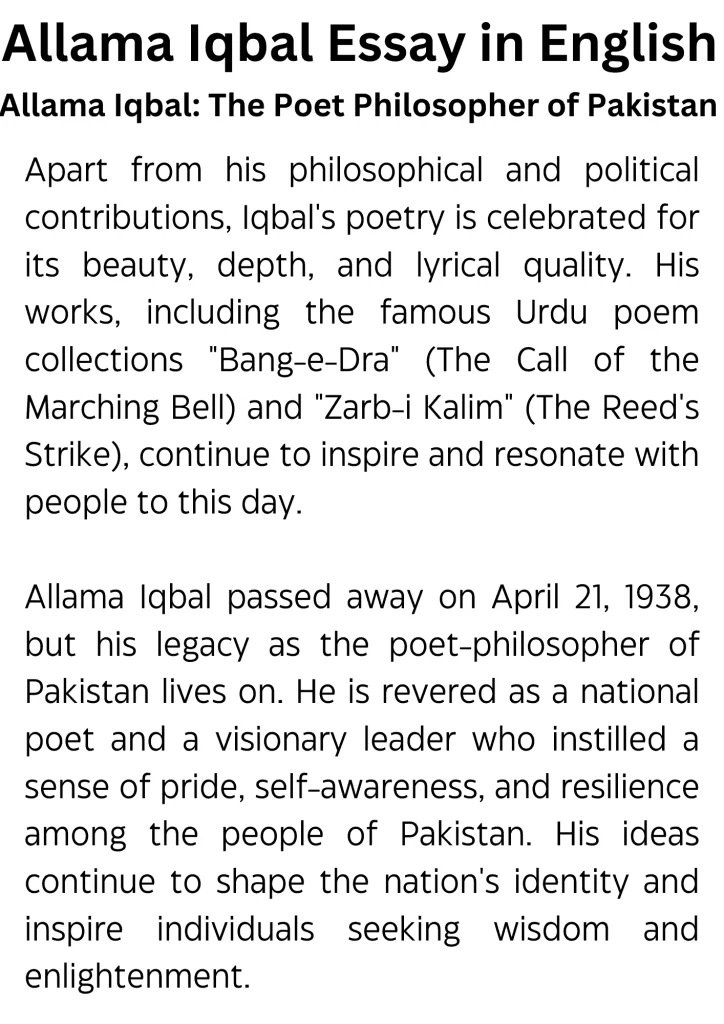
allama iqbal essay in english pdf free download
Essay on Allama Iqbal in English With Headings
Introduction Allama Iqbal and his significance
Allama Iqbal, born on November 9, 1877, in Sialkot, British India (now Pakistan), was a renowned philosopher, poet, and politician. He is widely recognized as one of the most influential thinkers and leaders in the history of Pakistan and the Muslim world. Iqbal’s significance lies in his multifaceted contributions to literature, philosophy, and the political movement for the creation of Pakistan.
Early life and education of Allama Iqbal
He belonged to a Kashmiri Muslim family of scholars and religious leaders. His father, Sheikh Noor Muhammad, was a respected tailor and religious scholar. In 1895, Iqbal travelled to England to pursue higher studies. He enrolled at Trinity College, University of Cambridge, and obtained a Bachelor of Arts degree in 1897.
In 1905, Iqbal travelled to Germany to pursue a doctoral degree in philosophy. He studied at the Ludwig Maximilian University of Munich under the guidance of prominent scholars such as Friedrich Hommel and Friedrich Paulsen. In 1907, Iqbal completed his doctoral thesis titled “The Development of Metaphysics in Persia.”
Literary Works and Contributions to Urdu and Persian Poetry
- “Bang-e-Dra” (The Call of the Marching Bell): This collection, published in 1924, marks a significant milestone in Iqbal’s poetic journey.
- “Zarb-i Kalim” (The Reed’s Strike): Published in 1936, this collection further showcases Iqbal’s mastery of poetic expression.” Lab Pe Aati Hai Dua Ban Ke Tamanna Meri” (My Prayer Rises to My Lips as a Desire) and “Sitaron Se Aage Jahan Aur Bhi Hain” (Beyond the Stars.
- “Bal-e-Jibril” (Gabriel’s Wing): This collection, published in 1935, further showcases Iqbal’s poetic genius. Notable poems from this collection include “Gabriel’s Wing,” “Lenin in Islam,” and “Mard-e-Momin” (The Ideal Muslim).
- Persian Poetry: Iqbal’s Persian poetry holds immense significance and has garnered appreciation from scholars and poets worldwide. His Persian verses reflect his deep knowledge of Persian literature and philosophy.
Philosophical ideas and Concepts introduced by Allama Iqbal
- Khudi (Selfhood): Iqbal emphasized the concept of “Khudi” or selfhood as a central theme in his philosophical works.
- Tawheed (Unity of God): Iqbal explored the concept of Tawheed, emphasizing the unity of God and the interconnectedness of all existence.
- Iqbal’s Concept of God: Iqbal’s understanding of God is dynamic and evolving. He rejected a static and passive concept of God, advocating for an active and living God who actively engages with creation.
- Concept of Ijtehad: Iqbal emphasized the importance of “Ijtehad,” which refers to the independent interpretation of Islamic principles and laws in response to changing circumstances.
- Reconstruction of Muslim Ummah: Iqbal was deeply concerned about the decline of the Muslim community and called for its intellectual and spiritual rejuvenation.
Legacy and Impact of Allama Iqbal on Pakistan and the World
- Ideological Foundation of Pakistan: Allama Iqbal’s vision and intellectual contributions played a pivotal role in inspiring the demand for a separate homeland for Muslims, leading to the creation of Pakistan in 1947.
- National Poet and Literary Icon: Allama Iqbal is Pakistan’s national poet. His poetic works in Urdu and Persian continue to be widely read, celebrated and studied.
- Educational Reforms: Allama Iqbal emphasized the importance of education as a means of empowerment and social progress.
- International Recognition: Allama Iqbal’s impact extends beyond Pakistan’s borders. His poetry and philosophical ideas have gained recognition and appreciation worldwide.
My Favourite Personality Iqbal Essay Poetry in English – شاعری
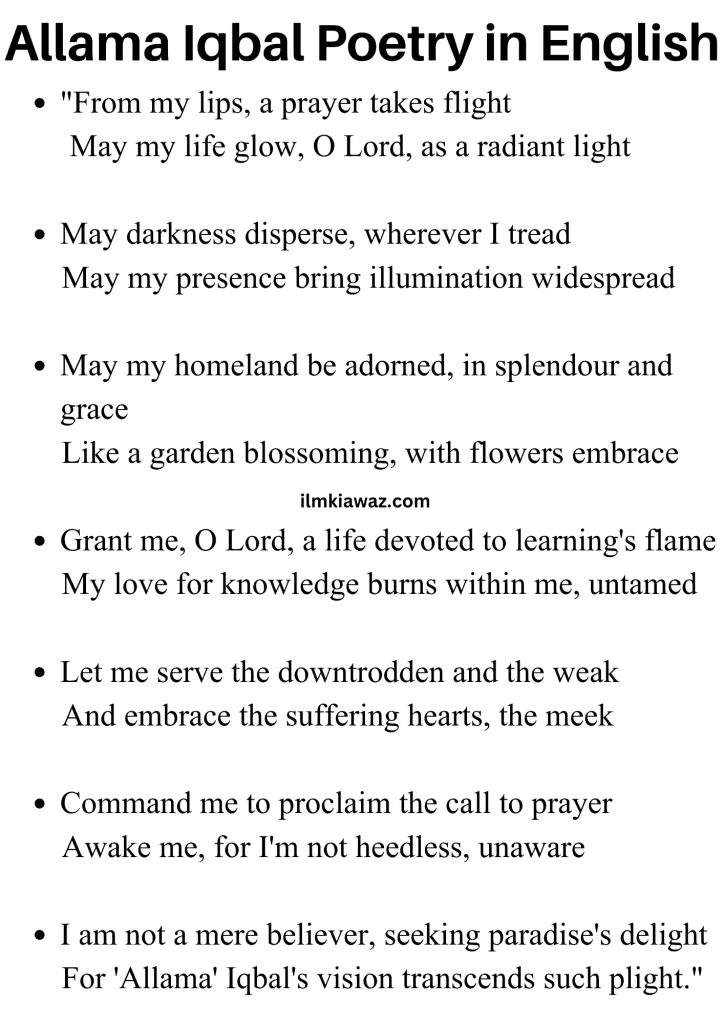
10 lines on Allama Iqbal Essay in English
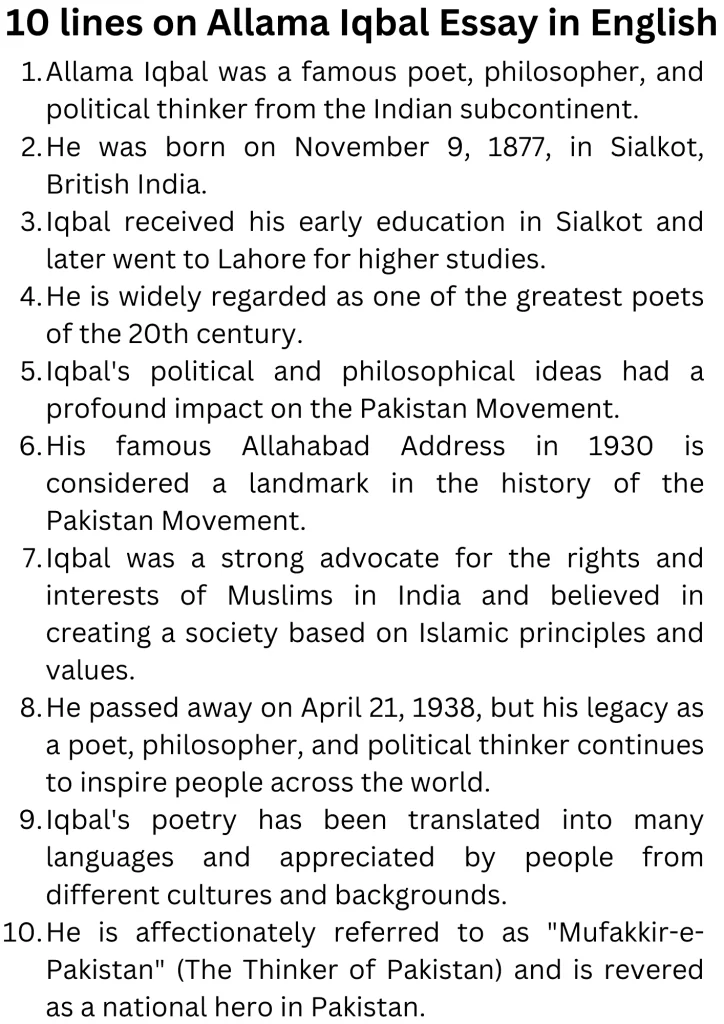
Conclusion
Allama Iqbal was a visionary leader who made an indelible impact on the history of Pakistan and the globe. His poetry and ideas continue to inspire and drive others to this day. His philosophy of self-reliance, tenacity, and compassion for everyone has become a cornerstone of Pakistani society, and his legacy will be remembered for years.
FAQs
Who was allama iqbal?
Allama Muhammad Iqbal was a prominent poet, philosopher, and politician of the 20th century, widely regarded as the national poet of Pakistan. He is known for his poetry which reflects his deep understanding of Islamic spirituality, philosophy, and culture.
When was he formally titled Sir?
Allama Muhammad Iqbal was formally titled “Sir” in 1922 when the British government awarded him a knighthood in recognition of his services as a scholar and a poet.
What was Allama Iqbal’s contribution to literature?
A: Allama Iqbal’s contribution to literature was immense. He wrote poetry in both Urdu and Persian, which is characterized by rich metaphors, deep symbolism, and a profound understanding of Islamic spirituality.
What was Allama Iqbal’s political philosophy?
A: Allama Iqbal’s political philosophy was based on the idea of an independent Muslim state. He played a key role in the struggle for the creation of Pakistan and his vision of a separate Muslim state inspired the Muslim community of India.
What is Allama Iqbal’s legacy?
A: Allama Iqbal’s legacy is that of a poet, philosopher, and political thinker who has had a profound impact on Islamic thought. His poetry and philosophy continue to inspire people in Pakistan and around the world.
Allama Iqbal Born and Death date?
Allama Iqbal, whose full name was Sir Muhammad Iqbal, was born on November 9, 1877, in Sialkot, Punjab, British India (now Pakistan). He passed away on April 21, 1938, in Lahore, Punjab, British India (now Pakistan).
Note: I hope you enjoy reading this short, small, and easy essay on Allama Iqbal in the English language for classes 3,6,4,5,7,8,9, and others. you can also read

